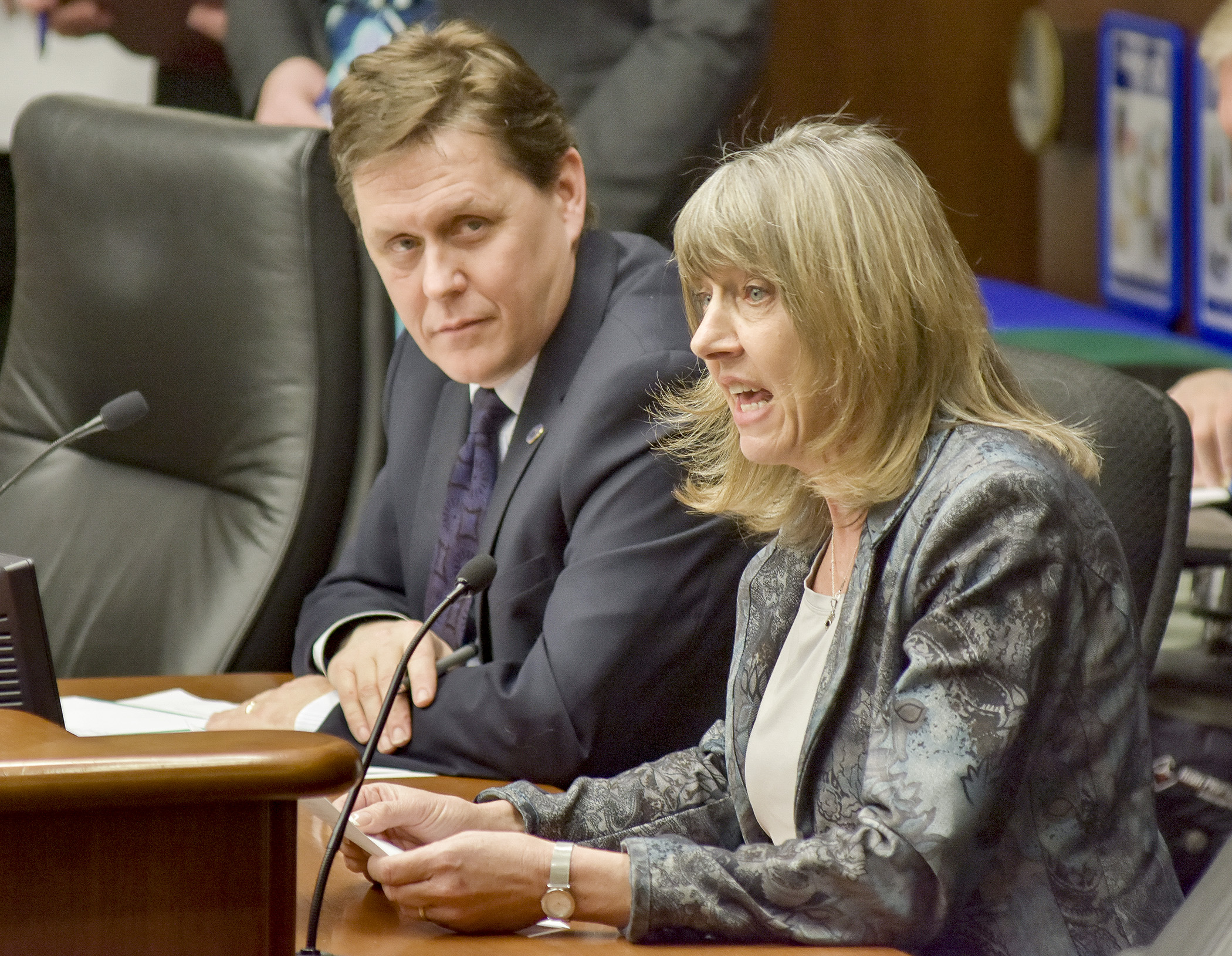MNsure repeal revisited, in the running for inclusion in omnibus bill

MNsure was too big of a project that was rolled out too quickly and doesn’t do what it promised, Rep. Matt Dean (R-Dellwood) told the Health and Human Services Finance Committee Wednesday.
HF10, sponsored by Dean, would repeal the 3-year-old state insurance marketplace and have the state opt into the federal system that currently services many other states. The move is intended to save money and regain legislative oversight over the portal connecting Minnesotans to public services, Dean said.
As amended, the bill was held over for possible inclusion in an omnibus bill through a party-line, roll-call vote. A companion, SF1148, sponsored by Sen. Scott Jensen (R-Chaska), awaits action by the Senate Health and Human Services Finance and Policy Committee.
DFL committee members criticized the plan, saying that it is imprudent to direct people toward the federal system while the federal government’s position on maintaining it is uncertain, especially in light of MNsure’s record enrollment this year.
At a morning news conference, Gov. Mark Dayton said MNsure is performing well and called plans to dismantle it “ill-advised.”
Dean sponsored the same bill in 2015 and it was included in the omnibus health and human services finance bill. The national scene has changed since then, however, making the maintenance of a state system even more important, opponents said.
Despite improvements since its rollout, MNsure has continued to prove difficult to operate, hasn’t provided any tax benefit to the state, and doesn’t provide the tools counties need to connect people with government programs. A system designed around the needs of counties would be more efficient, Dean said.
He questioned the wisdom of continuing to use state resources to “prop up” MNsure, especially without any statutory authority over its budget.
Opponents argued that MNsure is largely self-sufficient. Funding from the Department of Human Services is only used to support a shared technology platform that makes eligibility determinations and serves the department as a case management tool, testified Nathan Moracco, assistant commissioner for health care.
The bill would require the Commerce Department, in consultation with other departments, to develop an implementation plan, which would be presented during the 2018 legislative session. Coverage through the federal marketplace would begin Jan. 1, 2019. The bill includes a blank appropriation for the 2018-19 biennium to fund the conversion.
Related Articles
Search Session Daily
Advanced Search OptionsPriority Dailies
Ways and Means Committee OKs proposed $512 million supplemental budget on party-line vote
By Mike Cook Meeting more needs or fiscal irresponsibility is one way to sum up the differences among the two parties on a supplemental spending package a year after a $72 billion state budg...
Meeting more needs or fiscal irresponsibility is one way to sum up the differences among the two parties on a supplemental spending package a year after a $72 billion state budg...
Minnesota’s projected budget surplus balloons to $3.7 billion, but fiscal pressure still looms
By Rob Hubbard Just as Minnesota has experienced a warmer winter than usual, so has the state’s budget outlook warmed over the past few months.
On Thursday, Minnesota Management and Budget...
Just as Minnesota has experienced a warmer winter than usual, so has the state’s budget outlook warmed over the past few months.
On Thursday, Minnesota Management and Budget...